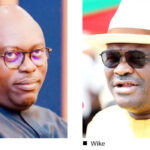To press home the actualization of fiscal autonomy for the judicial arm of government, the Judicial Staff Union of Nigeria (JUSUN) embarked on a strike action since April 6. Accordingly, the union had set up a task force that went from court to court to enforce their demand of stoppage of court operations nationwide. The strike affected all courts including the Supreme Court of Nigeria (SCN). The President of JUSUN, Marwan Adamu, defended the union’s action as intended to enforce a constitutional provision of fiscal autonomy for the judiciary at all tiers of governance, and which had been breached historically by executive governors of respective states.
Rather, the governors expropriate and usurp the statutory allocations for the judiciary and legislature in their respective states, thereby denying the other arms of government the liberty of directly administering their statutory allocations from the federation account. Adamu also cited several sections of the constitution to buttress his defence of JUSUN over the strike.
- Day Ganduje launched Teen Trust to boost Kano’s free, compulsory education policy
- Senate wants Ebonyi killings probed
In the same vein of deferring to the constitution, President Muhammadu Buhari had since 2020 issued Executive Order 10, intended to fast-track the implementation of fiscal autonomy for the legislature and judiciary at all tiers of governance. Among other provisions, Executive Order 10 specifically empowers the Accountant General of the Federation to deduct from the allocation due to a state from the Federation Account, any appropriated sum for the legislature or judiciary in that state which fails to release to the respective beneficiary organs and to pay such deducted sums directly to such affected organs. That the situation remained unresolved until the strike by JUSUN points to the incontinence of the Office of the Accountant General of the Federation to do the needful.
It is lamentable that despite the oath of office by state governors on coming to office, to stand and defend the constitution, they remain the culprits in this unconscionable practice. As political leaders of their respective states, they are the least expected to act as lawbreakers, and in the context of breaching the extant and inviolable provisions of the constitution. Just a fortnight ago, the country’s state legislative houses also embarked on a similar strike and for the same reason of expropriation of their statutory allocations from the Federation Account by state governors. The situation, therefore, calls for a proper interface between the president and the governors over the matter.
Meanwhile, in the wake of the strike have been a series of responses each aimed at resolving the impasse. Among these are the meeting between JUSUN and the National Judicial Council (NJC), the Nigerian Bar Association (NBA) and the Minister of Labour and Productivity, Chris Ngige. It is also expected that the governors will meet on the matter even as concern grows that they may proceed to court to seek clarification over the interpretation and implementation of the provisions of Executive Order 10. However, such consideration is widely believed to fly in the face of logic, as the matter remains a constitutional one while their action translates into a breach of the same constitution.
In another context, given that the courts remain the hope of the common citizen for obtaining justice, the affront against the judiciary by the governors in respect of the former’s fiscal liberties qualify to be condemned by all Nigerians of good conscience, as such remains a restraint of the course of justice.
Against the backdrop of Executive Order 10, it is time for FAAC to take official action to uphold its provisions. Finally, all efforts must be made to ensure that the judiciary is truly independent as anything short of that is not good for the country.

 Join Daily Trust WhatsApp Community For Quick Access To News and Happenings Around You.
Join Daily Trust WhatsApp Community For Quick Access To News and Happenings Around You.


